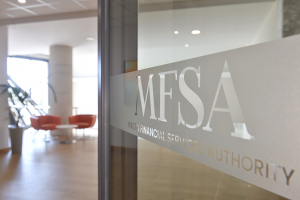
By Joseph Cuschieri, Chief Executive Officer, MFSA
These last two years have seen the MFSA undergo an intensive exercise to ramp up its approach towards the prevention of financial crime. Against the backdrop of evaluations and recommendations from the International Monetary Fund (IMF), The Committee of Experts on the Evaluation of Anti-Money Laundering Measures and the Financing of Terrorism (MONEYVAL), the European Banking Authority (EBA), as well as the implementation of the 4th and 5th Anti-Money Laundering Directives, the MFSA has been on a constant project planning and change management journey. This has seen a complete organisational overhaul to strengthen the Authority and prepare it for a sustainable long-term path.
The MFSA has placed the combatting of financial crime as one of its key strategic priorities, with the publication of its AML/CFT Strategy in February 2019, and its Supervisory Priorities in December 2019. All of the MFSA’s efforts in AML/CFT are underpinned by its close cooperation with other regulatory authorities in Malta, notably the Financial Intelligence Analysis Unit (FIAU).

In fact, as agents of the FIAU, the MFSA ensures that the frequency and depth of inspections are based on the ML/TF risk of each entity. The steep increase in resources within the Financial Crime Compliance function, set up last year, has empowered the MFSA to drastically increase its AML/CFT onsite visits by 233%, from 18 in the July 2018 - June 2019 cycle to 60 between July 2019 - June 2020. Additionally, 75 AML/CFT onsite visits are scheduled between July 2020 and June 2021.
The MFSA has also updated its internal procedures to ensure that AML/CFT considerations are integrated in the assessments performed by its authorisations, prudential supervision, and conduct supervision teams. The MFSA logs Key Risk Indicators emanating from such visits, and the findings drive the supervisory priorities and thematic reviews, targeting specific weaknesses and vulnerabilities identified. This approach is even more acute in high risk areas such as credit and financial institutions, virtual asset service providers, and trustees and company service providers.
A wholly revised authorisations process has seen the introduction of additional checks and balances, a defined risk appetite, and revised procedures which delve further into the fitness and propriety of individuals throughout their involvement in the financial services sector. Further enhancements in the process include inputs from the Authority’s new Due Diligence function with additional resources and new procedures for assessing the competence of Money Laundering Reporting Officers (MLROs).
The MFSA is ensuring that it is a driver of change in the compliance culture of the Maltese financial sector. The knowledge gained, the risks identified, common weaknesses and pitfalls as well as best practices which come to light, are communicated to the industry using conferences, workshops, seminars, circulars, guidance papers, and other forms of communications. As a result of the COVID-19 pandemic, the MFSA’s outreach is now focused on digital platforms.
The measure of success for the MFSA will be the regulated industry’s ability to become an effective gatekeeper against the illicit use of the Maltese financial sector. This will be a journey of continuous improvement.

